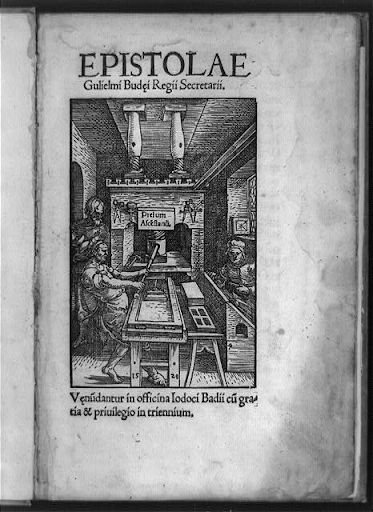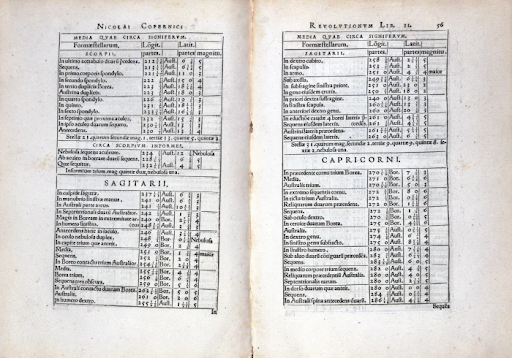
Printing press of Joducus Badius with three workers in shop. Badius, Josse, 1462-1535 (Courtesy of Library of Congress)
Conclusion

Printing press of Joducus Badius with three workers in shop. Badius, Josse, 1462-1535 (Courtesy of Library of Congress)
“A man born in 1453, the year of the fall of Constantinople, could look back from his fiftieth year on a lifetime in which about 8,000,000 books had been printed, more perhaps than all the scribes of Europe had produced since Constantine founded his city in A.D. 330.”
-Elizabeth Eisenstein

Sketch of a printing press taken from a notebook by Leonardo Da Vinci (Courtesy of Science and Society Picture Library)
“It is a press, certainly, but a press from which shall flow in inexhaustible streams... Through it, God will spread His Word. A spring of truth shall flow from it: like a new star it shall scatter the darkness of ignorance, and cause a light heretofore unknown to shine amongst men”
-Johannes Gutenberg
Gutenberg's printing press has broken several barriers during the 14th and 15th centuries. The invention contributed to historical events like the Enlightenment, Scientific Revolution, Renaissance, and The Reformation. Book production and literacy rates rose since the 15th century, and information was spread more quickly. Protestantism was founded, and Europe was religiously divided, which led to the Thirty Years' War. The church had lost power, and eventually, the Peace of Westphalia was formed, and the balance between powers was restored.
As ideas spread, people questioned political and religious powers in Europe. The press had helped philosophers and scientists spread ideas and discoveries. As the printing press was improved and replaced over the centuries, literacy and book production continues to grow tremendously, especially during the 20th century. As there are numerous benefits Gutenberg's press has brought, there are still losses that were made. After the 16th and 17th centuries, there has been a decline in the Latin language used in most books before Gutenberg.

Tables from Polish astronomer Nicolaus Copernicus' pioneering text “De revolutionibus orbium caelestium” 1543 (Courtesy of Public Domain)

"Common Sense" by Thomas Paine at the Museum of the American Revolution (Courtesy of Museum of The American Revolution)
Memorization was also a method that was abandoned. Socrates had been concerned that the disuse of memorization "will create forgetfulness in the learners' souls." Although these were significant losses, the number of gains immensely outweighs the number of losses. During most historical events, books usually had a role to play and helped us get to where we are now. Gutenberg's methods will be replaced over the centuries, but his accomplishments have massively contributed to history.
"What gunpowder did for war the printing press has done for the mind."
-Wendell Phillips